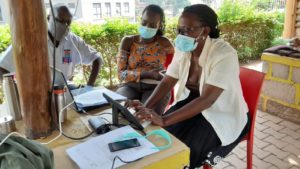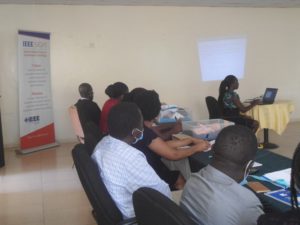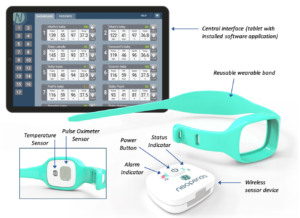
A team of IEEE Uganda volunteers together with the Neopenda staff (middle) jointly developing and refining activities of project titled “Adoption of a wireless vital sign monitor for COVID-19 case investigation and patient care.”
Humanity today is highly involved in living in an-ever changing world whereby being dynamic and highly flexible is the order of the day. Accordingly, the use of technology has become highly fashionable and indeed critical in driving life for the viable existence of humanity. In order for humanity to benefit and progress better, a strong focus should be made to ensure that all activities undertaken aim at benefiting not only the economic aspects, but rather addressing and sustaining humanitarian needs for ecological balance.
It is imperative to note that successful implementation of these activities involves diverse stakeholders. For example, targeted communities identify and bring out the challenges they face in their daily living experience to the attention of the problem solvers (in this case, engineers). The engineer plays the role of looking at the identified challenges and coming up with the appropriate solutions to address them.
As for the development partner, his or her role is to avail the resources required to facilitate the process of addressing the challenge in question. The problem solver is a key bridge between the targeted beneficiaries and the development partner in implementing this problem-solving process in the most successful way possible.
This holistic approach serves the purpose of attaining harmonious and holistic development.

Some of the health workers being trained by IEEE volunteers and Neopenda during the adoption of a wireless vital sign monitor for COVID-19 case investigation and patient care.
It is in this humanitarian-based holistic spirit, that IEEE HAC/SIGHT support projects implemented globally by IEEE volunteers and collaborating partners such as “Adoption of a wireless vital sign monitor for COVID-19 case investigation and patient care.” This is a project is being implemented by volunteers from IEEE Uganda Section collaborating with Neopenda from USA.

Product Image
In summary, it is important to note that in solution implementation, all key stakeholders play their roles so that the solution can bring about the aspects of impact and widespread benefit within the targeted communities and as well to serve as a development model that could be replicated across other communities where the development process is highly felt and needed.

